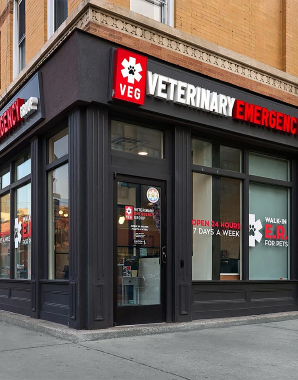LOCAL VETERINARY VS. CORPORATE/VENTURE-BACKED PRACTICES
Not All Are Created Equally
Ever since I can remember, we have brought our pets to small veterinary practices. You know the type—when you walk in, they know you and your pet’s name, and even the receptionist remembers your pet’s history. It always made medical care for our pets a lot easier and more comforting. Today, the world of veterinary medicine is much different. And like many things, it has not improved with age.
To be honest, caring for a sick pet is not the easiest thing. They cannot communicate how they feel or where it hurts. So having a solid vet who knows your pet is so important. And, lest we forget, most veterinary practices are owned by either a limited partnership between two or three people or by one person. They tend to be family-owned and operated businesses except for the recent smattering of open corporate or venture-backed practices, like BOND, VEG, Small Door, and more.
So, what are the prime differences between corporate-owned (or venture-backed) practices and their more family-driven counterparts? Usually, like in every other business sector, the former is more stringently structured with little to no flexibility for fur patients or pet parents. In other words, compassion often gives way to corporate policy or fear of legal liability at these corporate outposts.
In smaller, family-oriented practices, veterinarians spend more time training their staff on the ins and outs of animal medicine, providing an apprenticeship. At corporate-backed practices, typically, they are more concerned with appearances than care, and if you dare to depart from this norm, you are usually shown the door. Of course, not all of them behave this way.
So let me give you a few examples of experiences I have gone through to illustrate my points.
Bond Vet
When we adopted Brioreo, a corporate-funded practice, BOND Vet opened right around the corner from our apartment in the East Village. On Bri’s “Gotcha Day” (the day she was officially adopted), we decided to give them a try. When we went for her initial appointment, they were new to the neighborhood, so they seemed to put their best paw forward. Boy, did that change rather quickly once they settled in.
SIMPLE PROCEDURE TURNS
TRAUMATIC
Last year, Brioreo was dragging her butt on the sidewalk, which is indicative of the need to have her anal glands expressed. Anal gland expression is the single most common procedure done at vet practices that is also often done at the grooming salon. It was a simple procedure that would be an easy trip down the block and then home. It was anything but easy and resulted in my departing BOND and taking several of their clients with me.
At the location, I explained what was needed. A vet tech took Bri into the back room. More than ten minutes later, which already left me concerned, the vet tech came out with a vet explaining that Brioreo was acting out and they were having a difficult time expressing her anal glands. Knowing how odd this is, as Bri is always an easy patient, I offered to go into the room and hold her while they did the expression (something I had done many times in my life across the many dogs I have had). They claimed there was a liability issue with me being in the room with them. They then asked me if it would be okay to put Bri under sedation or to give her a severe (their words, not mine) sedative to relax her.
So, let’s be clear about this. They wanted to sedate my dog to clean out her anal glands, a procedure that a dog groomer can do in minutes and likely only had a few hours of training to achieve. Yes, they asked if they could sedate my dog. Not realizing they were dealing with someone who understands veterinary medicine, I responded by asking if they thought it was a more significant liability to give a dog a sedation cocktail that could potentially kill her versus just letting me comfort my dog as they conduct the simple procedure.


BAD BEHAVIOR
They didn’t seem to understand, so I asked them to bring Brioreo out to me. I explained to them that if they can’t even be bothered to do the most basic procedure without harming my dog, why would I trust them with anything related to my pet? I said it loudly enough so the rest of the waiting room could hear me. Their response? Radio silence. When I finished my following sentence, they handed me Brioreo’s leash, and the rest of the folks waiting to see a vet followed me out the door. This is just one example of the behavior I have witnessed the staff exhibit at this location.
Then, two weeks ago, my upstairs neighbor ran into an issue wherein her dog had debris stuck in his tear duct. Not knowing what it was and concerned her dog was focusing on his eye so much, she called BOND as they are closest to our building, and her family vet is closed on Saturdays. The receptionist at BOND East Village stated that they didn’t have any vets coming in until Wednesday of that week and were closed Monday and Tuesday. And, no, it isn’t just their East Village location that seems to be the problem. The same experience happened to a woman named Marla on the Upper East Side at the Yorkville location. How can you call yourself a veterinary practice if you can’t even get licensed veterinarians to your locations?
How is it possible that you can’t secure veterinarians when Warburg Pincus and Talisman Capital Partners poured an additional $50 million into the business less than six months ago? One would think that with that level of cash on hand, you could fulfill the most basic obligation of your business—seeing patients.
You see, BOND was initially conceived as a CityMD-like urgent care clinic for pets. Then, with some initial success, the chain decided to attempt to be all things to all pet parents. This has yet to work out well for BOND in New York. If you look at the Google and Yelp reviews for their locations throughout the city, the lion’s share are not positive reviews. Yet in other cities, if you do the same search, BOND serves their fur patients and pet parents well. Granted, New York has twenty-two locations, whereas most of their other cities have between two and five locations.
HELPING PETS & THEIR PARENTS
To contrast this argument and ensure folks don’t feel I am unfairly singling out BOND, look at Veterinary Emergency Group, or VEG for short. VEG was launched to help pets and their pet parents resolve urgent pet medical issues. In other words, VEG is precisely what it purports to be: an emergency vet clinic. They have not, to my knowledge, waded into the complicated waters of traditional veterinary medicine as a practice. Yet despite a similar financial backing model, VEG delivers excellent care with minimal negative sentiment in the market. Another neighbor, fed up with BOND, asked me for a recommendation for an emergency pet visit, and I suggested the VEG location in Chelsea. Not only were they able to diagnose the problem and resolve it quickly, but the tender loving care with which they treated both pet parents and pets was terrific. The same goes for Small Door, wherein most Small Door reviews are positive! So, what happened to BOND in New York? I will get back to that question in a minute.
I want to tackle the 800-pound gorilla in the room…the alleged veterinarian shortage. That is the only defense I can think of concerning the scheduling mistakes and shifting clinic hours, which seems to have become the norm for BOND in New York. The fact is that right before the pandemic, we started seeing a slight shortage of qualified vets in the city. During the pandemic, the situation became a little more problematic. However, once the lockdowns were over and business began to open back up, virtually all twenty-five veterinary practices I called in Manhattan reported no problems sourcing qualified vets. VEG’s ranks seem to be okay, and so do Small Door.
Back to my earlier question, “So what happened to BOND?” Perhaps my initial premise of veterinary practices needing to be small business operators is incorrect. After all, if VEG and Small Door can manage to act like mom-and-pop vet practices, why can’t BOND? Perhaps the issue is not where the money comes from but who is spending it and how. At least, that is the only logical conclusion I can come up with, given the facts mentioned earlier. And given the reviews in other cities, perhaps BOND needs to look at the management of their locations in the New York market a little more closely—just my two cents.
The net net is simple: When it comes to your furry one’s health and wellness, you need to use your gut instinct as a pet parent. It is that straightforward. But please don’t make the mistake of going to a “big box” vet practice just because they have their own app or a more modern facility. The reality is that with pets, the care is more important than the aesthetic or “cool factor.”
If you feel a veterinary practice like BOND is better suited to your needs because of convenience or whatnot, that’s great. Suppose you need the TLC that typically comes with a small business practice, great. In either instance, please be vigilant about understanding your pet’s needs and medical care. It can mean the difference between taking your pet home to love on them or sending them over the Rainbow Bridge.




